Website Design & Development: Katharina Nejdl
Graphic Design & EKB Sans Typeface: Jan Egbers
OPS Cubic Typeface courtesy of: Our Polite Society Type
Website Design & Development: Katharina Nejdl
Graphic Design & EKB Sans Typeface: Jan Egbers
OPS Cubic Typeface courtesy of: Our Polite Society Type
Aschenbrenner, Lina. Neo-Spiritual Aesthetics: Embodied Transformation in the Israeli Movement Practice Gaga. Bloomsbury Academic, 2023.
Barad, Karen. On Touching—the Inhuman That Therefore I Am. Duke University Press, 2012.
Bennett, Tony. The Exhibitionary Complex. Routledge, 1996.
Berila, Beth. Integrating Mindfulness into Anti-Oppression Pedagogy: Social Justice in Higher Education. Routledge, 2016.
Christofalou, Filippa. Facilitating Body Based Pedagogies in Museum Spaces: The Significance of Addressing Social Location and Positionality. NAEA, 2022.
Cusicanqui, Silvia Rivera. Ch'ixinakax utxiwa: On Decolonising Practices and Discourses. Polity, 2020.
Fedrici, Silvia. Beyond the Periphery of the Skin: Rethinking, Remaking, and Reclaiming the Body in Contemporary Capitalism. PM Press, 2020.
Higler, Ria. Movement Research: Stories and Journeys. SNDO, 2015.
hooks, bell. Teaching to Transgress: Education as the Practice of Freedom. Routledge, 1994.
Johnson, Don Hanlon. Diverse Bodies, Diverse Practices: Towards an Inclusive Somatics. North Atlantic Books, 2018.
Johnson, Ray. Embodied Social Justice. Routledge, 2017.
Katan, Einav. Embodied Philosophies in Dance: Gaga and Ohad Naharin’s Movement Research. Palgrave Macmillan, 2016.
Kuppers, Petra. Disability Arts and Culture: Methods and Approaches. Intellect, 2022.
Kuppers, Petra. Eco Soma: Pain and Joy in Speculative Performance Encounters. University of Minnesota Press, 2022.
Lepecki, André. Choreopolice and Choreopolitics: or, the task of the dancer. Cambridge University Press, 2013.
Ndikung, Bonaventure Soh Bejeng. In a While or Two We Will Find the Tone. Archive Books, 2020.
Rainer, Yvonne. Moving and Being Moved. Roma, 2017.
Russel, Marta. Capitalism and Disability. Haymarket Books, 2019.
Schwan, Nell. Fordian Dreams: (Something about) factories for learning & the Cartesian split. Gerrit Rietveld Acadmie, 2023.
Shibolet, Yotam. Bodymind in Movement: Embodied Cognition in the Practice and Discourse of Contact Improvisation. Utrecht University, 2018.
Terk, Micaela. On Possibilities for Sensory Research. Taylor & Francis, 2023.
Terk, Micaela. Techniques of Invisibility. Goodbye Books, 2018.
Yahalomi, Dana & Katsof, Alhena. Solution 263: Double Agent. Sternberg Press, 2015.
Team
Micaela Terk (Director & Co-Founder) is a writer-publisher, artist, and facilitator. Her practice and community-weaving stems from her commitment to movement research and somatic literacy as transformative forms of knowledge and perception. Over the last 10 years, Micaela has worked with various movement, choreography, breath work and somatic methods.
Yotam Shibolet (Co-Founder) is a teacher and PhD researcher at Utrecht University, and a cum laude graduate of its Media, Art and Performance research master program. His interdisciplinary research on ‘embodied narrativity’ combines insights from philosophy, embodied cognition, critical theory, and new media studies to explore the central role of movement and interaction in our capacity to make sense of art and grasp meaning at large. Yotam is a long-time practitioner and facilitator of Contact Improvisation and other somatic methods.
The Embodied Knowledge Bureau is a space for investigating, reclaiming, and engaging the body within artistic education. The course will integrate movement and somatic workshops, open discussions, lectures, and film screenings that seek to mend current disciplinary blindspots and language barriers that often exist between academics and experiential experts. Participants will dwell within an interdisciplinary community of practitioners and scholars, both in Amsterdam and internationally, who work through embodied approaches to knowledge and learning.
Our program emerges out of a longing to mesh fields typically deemed separate — to grant access to knowledge which is too often confined to specific institutional frameworks. We believe that the body’s flesh, bone, and cellular structures archive crucial knowledge and embed both personal and collective histories which can absolutely be drawn on within artistic practice and research.
When dominant educational theories, pedagogical practices, and institutional structures omit the body, can somatic literacy serve as a tipping point for transformation? In a cultural, economic, and technological climate that increasingly addresses subjects as disembodied brains, what unique forms of expression, sense-making, and knowledge-sharing can embodied awareness uncover?
The Embodied Knowledge Bureau targets visual and spatial makers interested in exploring the impact of embodied experience on our ways of thinking, creating, and understanding our surroundings. We welcome participants at different stages of practice, movement experience, physical abilities, and a wide variety of interests. We are excited about weaving an inter-departmental community around topics which may often seem intimidating, inaccessible, or simply unaffordable.
The Embodied Knowledge Bureau firmly encourages participants to experiment with their own embodied expressions, languages, and styles. The program is designed to balance theory and experience, in order to allow participants ample space for reflection on the impact of their experiences on individual practices and interests. Throughout the year we will introduce an array of practices and techniques, as well as visual and written tools for describing and reflecting on these experiences. Together we will “read through the body,” using a sketchbook or body journal to document our insights and personal research. Selections of these materials will be published in the Embodied Learning Lexicon, an A-Z lexicon that will embody the terminologies and experiences that arise during the program.
Sign up to our newsletter here
